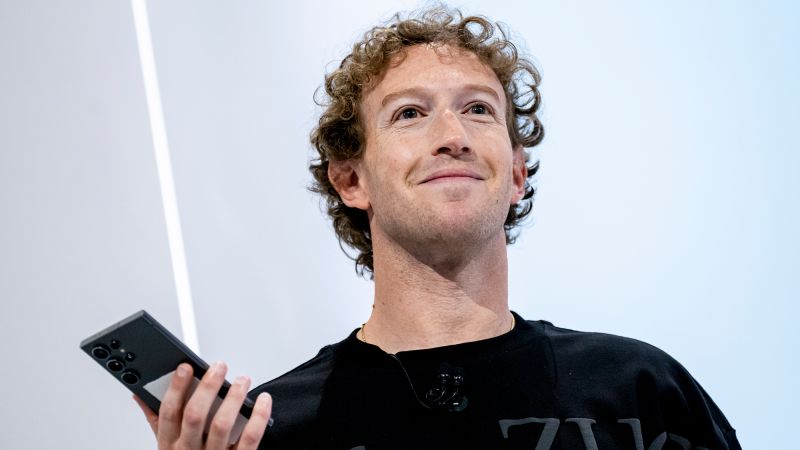The legal landscape surrounding Meta Platforms, formerly known as Facebook, has taken a significant turn as Mark Zuckerberg, along with current and former directors and officers of the company, reached an agreement on Thursday to settle claims that sought up to $8 billion for damages allegedly inflicted on the company. This settlement, which surfaced during a Delaware court hearing, comes amidst ongoing controversy surrounding privacy violations impacting Facebook users.
Judge Kathaleen McCormick, presiding over the Delaware Court of Chancery, was informed of the settlement by a lawyer representing the shareholders. However, the specifics of the agreement have not been disclosed. Defense attorneys refrained from addressing the court, prompting Judge McCormick to immediately adjourn the trial just before its second day was to commence. She congratulated the involved parties, signaling the closure of this chapter in the lengthy litigation process.
Sam Closic, the plaintiffs’ attorney, remarked on how swiftly the agreement came together, underscoring the potential complexities involved in reaching such legal resolutions amidst contentious claims. Among those set to testify was billionaire venture capitalist Marc Andreessen, a defendant in this trial and a strategic director for Meta, who was expected to give evidence on Thursday.
The lawsuit’s plaintiffs, comprising Meta shareholders, spotlighted Zuckerberg, Andreessen, as well as former chief operating officer Sheryl Sandberg, aiming to hold them accountable for billions of dollars the company has already incurred in fines and legal fees due to privacy breaches and regulatory neglect. Particularly, the Federal Trade Commission (FTC) had imposed a staggering $5 billion fine on Facebook in 2019 after the company was found guilty of violating a previous agreement to ensure the protection of user data.
Shareholders alleged that the 11 defendants should be liable to use their personal wealth to compensate the company for the financial damages sustained. The defendants, however, rejected the allegations, framing them as extreme and without merit. Notably, it’s also essential to highlight that while the executive leaders faced lawsuits, the company itself, which rebranded to Meta in 2021, was not a defendant in this case.
In the wake of the announced settlement, a reflective commentary was offered by Jason Kint, chief of Digital Content Next—a trade association advocating for content providers. He articulated a sense of disappointment, indicating that while the settlement might provide some relief to involved parties, it represents a failure to achieve public accountability for the actions that led to the controversies.
With the trial initially expected to stretch over several days, and high-profile testimonies lined up from Zuckerberg and Sandberg among others—including former board members like Peter Thiel of Palantir Technologies and Reed Hastings of Netflix—the abrupt closure on the trial represents a missed opportunity for shareholders to directly confront the executives about the implications of their leadership decisions.
The allegations stemmed from significant public criticisms following revelations about data misappropriation, most notably through the misuse of user data by Cambridge Analytica during the 2016 presidential campaign, which led to intensified scrutiny from regulators. The claims contended that Zuckerberg and Sandberg knowingly operated Facebook as an “illegal data harvesting” entity and that board members failed to enact necessary oversight.
As the trial commenced, testimonies began to reveal discrepancies surrounding Facebook’s privacy policies. An expert witness testified to the glaring gaps in these policies, reflecting systemic failures to meet established commitments. Additionally, testimony suggested there was no agreement with the FTC motivated by a desire to shield Zuckerberg from legal repercussions, as shareholders alleged, underlining the complicated layers of responsibility entangled within the litigation.
Meta, on its part, has consistently highlighted its financial dedication to user privacy in its literature post-2019, pointing to substantial investments towards improving privacy measures. Still, the settlement is criticized for signaling an inadequate reckoning for Meta’s operational transparency and accountability surrounding user data management.
In sum, while this settlement may clinch the legal battle against Meta’s executives, it also underscores significant unresolved issues regarding corporate governance and accountability in the age of digital surveillance. The case stands as a testament to the ongoing challenges tech giants face in dealing with user data privacy while navigating complex legal frameworks and public sentiment.










